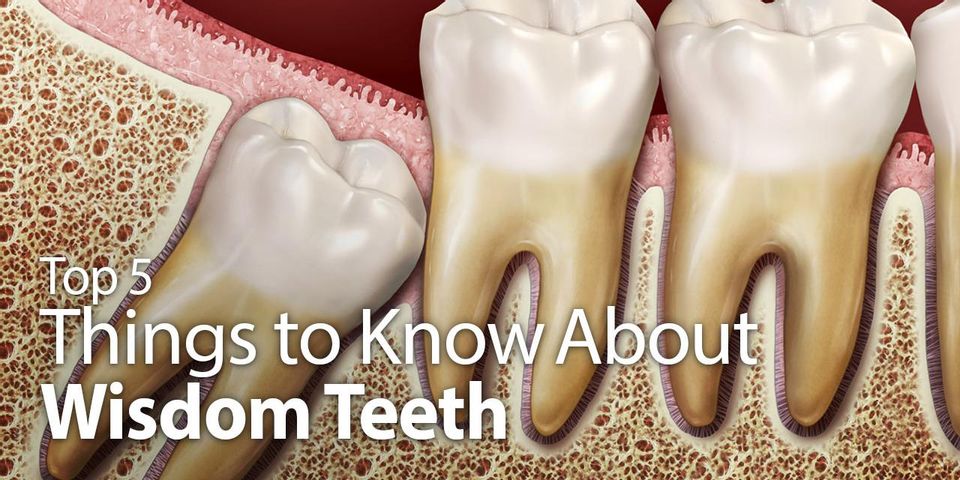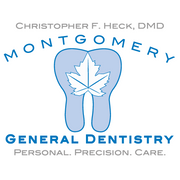Top 5 Things to Know about Wisdom Teeth

In most people, the third set of molars, generally called “wisdom teeth,” start coming in around age 17-25. However, the arrival of these teeth is often far from trouble-free. The extraction (removal) of one or more third molars is a relatively common procedure, performed on some 5 million patients every year. After a thorough examination and diagnostic tests such as x-rays or a CT scan, you may be told that you should have your wisdom teeth extracted. Here are some typical reasons why:
- Your jaw may be too small to accommodate all your teeth, leading to excessive crowding and the chance of your wisdom teeth becoming impacted — that is, unable to emerge from the gums, and potentially harmful to adjacent bone or teeth
- Your wisdom teeth may be erupting (coming in) in a crooked orientation, which can damage other teeth or anatomical structures in the jaw, and/or cause bite problems.
- If your wisdom tooth does not fully erupt (emerge from the gums), it can increase the chance for bacterial infection in the gums around the tooth, called pericoronitis. Even when treated with medication, is likely to recur.
- A cyst (a closed, fluid-filled sac) may develop around the unerupted wisdom tooth, which can cause infection and injury to the adjacent bone or nerve tissue. Often x-rays are needed to check on wisdom teeth and to rule out these type of complications.
- Even if you have made it through young adulthood with erupted wisdom teeth, or have them as an adult, they easily decay as they are hard to keep clean so far back, they are difficult to fix with fillings or crowns for the same reason and often develop gum disease around them that may put the adjacent teeth at risk as well. All these factors compound as we age, making all treatment, including late removal challenging for patient and doctor.
Whether it is aimed at preventing future problems or needed to alleviate a condition you already have, the extraction of wisdom teeth can be an effective treatment. But, as with all medical procedures, its benefits must be weighed against the small risk of complications, and should be discussed in detail.
If you have questions about your wisdom teeth or about your smile, turn to Christopher F. Heck, DMD - Montgomery General Dentistry in Ohio. Whether you have problems with your wisdom teeth or not, Dr. Heck can help you to create a treatment plan that tackles your other dental concerns. To learn more about this Montgomery dentist, visit his website or call (513) 794-1884.
About the Business
Have a question? Ask the experts!
Send your question

